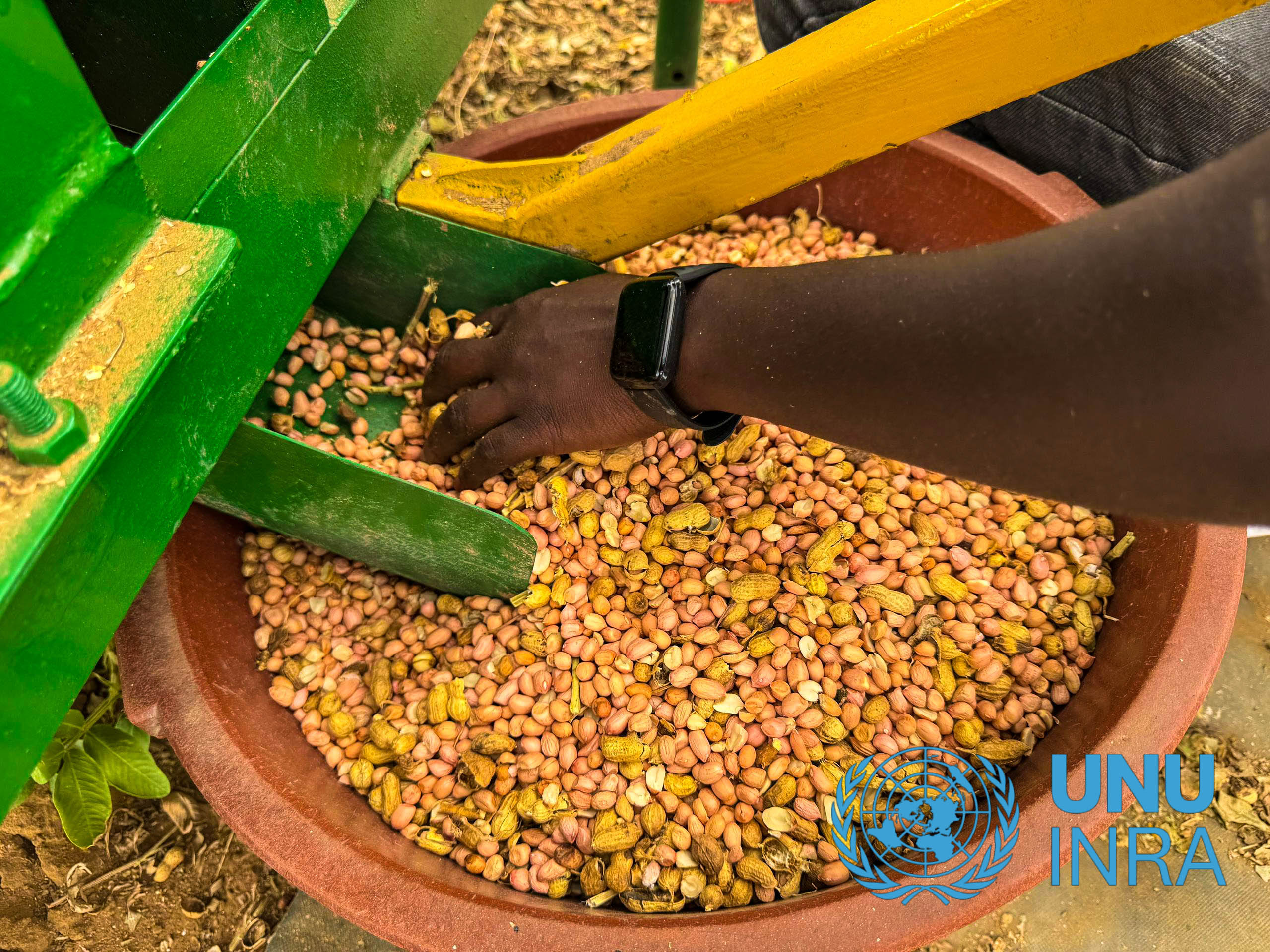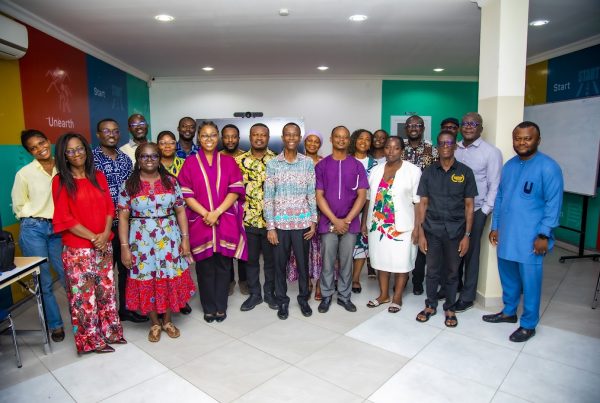Across West Africa, smallholder farmers, especially women, carry the weight of agricultural production on their shoulders. Yet, they often contend with back-breaking manual labour, outdated tools, and the health hazards of fossil-fuel-powered machinery. To tackle these challenges, the Innovate for Clean Agricultural Technologies (INFoCAT) initiative, funded by the International Development Research Centre (IDRC) under Clean Energy for Development: A Call for Action (CEDCA) programme, is charting a new path. Led by UNU-INRA, with Enda Energie in Senegal and UNU-INRA’s operating unit in Côte d’Ivoire, INFoCAT seeks to empower women and youth in rural communities by promoting affordable, clean-energy-powered technologies that can boost productivity and income while safeguarding both people and the planet.
The project began by identifying the barriers holding back smallholder farming and green innovation: the lack of opportunities for young entrepreneurs, heavy drudgery in farm work, limited access to finance, and an unfavourable policy environment for women-led businesses. To turn these challenges into opportunities, INFoCAT launched an Innovation Challenge, selecting twenty promising young agritech innovators; ten from Ghana, five from Senegal, and five from Côte d’Ivoire. Each received a seed grant of $7,400 to refine their ideas. But the process didn’t stop at funding. The innovators sat down with smallholder farmers and agro-processors in their communities, listening carefully to their pain points and adapting their prototypes to meet real-world needs. Agricultural and renewable energy experts guided them through technical improvements, ensuring that each innovation not only worked but was efficient, durable, and powered by clean energy, mainly solar.
This collaborative effort came to life between July and August 2025, when teams in Ghana and Senegal embarked on piloting tours. In Ghana, demonstrations were held in Namesi (Yilo Krobo District), Aveyime (North Tongu District), and Gomoa East District. Farmers watched and participated as solar battery-powered grain dryers, rice winnowers, groundnut plucking machines, mini maize combine harvesters, smart irrigation systems, and integrated cassava processing units transformed familiar farming routines. In Senegal, communities in Bambèye, Toubacouta, Taïba Niassène, and Gapakh saw their own tailored solutions in action, including groundnut pluckers and dehullers, cashew nut crushers, a mobile solar-powered cool house for preserving harvested crops, a smart irrigation system, and a dynamo energy generator.
These pilots were not mere demonstrations. Farmers, especially women, received hands-on training to operate the technologies confidently. Local leaders, policymakers, and private-sector stakeholders joined in discussions about how to refine, scale, and sustain these solutions. The enthusiasm from both innovators and communities underscored a powerful message: young Africans, given the right tools and support, can design context-appropriate technologies that ease farm labour, expand access to clean energy, and build climate resilience.
Next, Côte d’Ivoire will host its own pilot demonstrations, completing the regional showcase. After a rigorous evaluation of all innovations, three outstanding innovators, one from each country, will each receive $37,000 to scale up their solutions and bring them closer to market. Beyond the funding, the project will continue to nurture mentorship, policy advocacy, and networks to ensure these technologies take root, transforming livelihoods and reshaping agricultural practices across the region.
By uniting innovation, community engagement, and sustainable technology, INFoCAT is lighting the way toward a future where smallholder farmers in West Africa can thrive.







